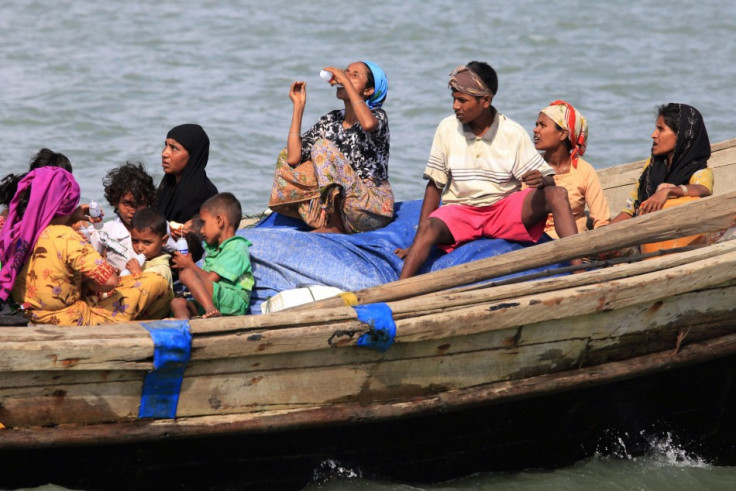Rohingya Muslims Should Go says Myanmar President, as UN Calls for 'Rape Riots' Investigation

Violence between ethnic Rakhine Buddhists and Rohingya Muslims in Arakan region in Myanmar is still raging.
Reports the Myanmar security forces are systematically targeting the Rohingya Muslims have led to a United Nations call for an independent investigation
"Prejudice and violence against members of ethnic and religious minorities run the risk of dividing the country in its commendable national reconciliation efforts, undermine national solidarity, and upset prospects of peace-building," the UN human rights chief Navi Pillay said.
The surge in violence was triggered by the rape and murder of a Rakhine Buddhist woman on May 28. Three Muslims men accused of the crime were detained and arrested.
More clashes and attacks between the state's Buddhist and Muslim communities followed, leading to the forced displacement of over 100,000 Rohingya.
Officials in Myanmar said the violence killed at least 78 Rohingya, community leaders insist up to 650 have died.
Responding to the Pillay's call, the country's president, former general Thein Sein said:
"We will take responsibilities for our ethnic people but it is impossible to accept the illegally entered Rohingyas who are not our ethnicity."
The solution he insisted was to exile the Rohingya - an estimated 800 000 of whom live in Burma.
"We will send them away if any third country would accept them," he said. "This is what we are thinking is the solution to the issue."
Nobel Prize winner Aung Sang Suu Kyi, the global symbol of the fight against oppression in Myanmar, has been criticised for failing to speak out.
In June when asked about whether the Rohingya should be given citizenship at a conference in Geneva she remained elusive, only saying the rule of law should prevail.
"We have to be very clear about what the laws of citizenship are and who are entitled to them," she said in Geneva, which she was visiting as part of a European tour. "All those who are entitled to citizenship should be treated as full citizens deserving all the rights that must be given to them."
© Copyright IBTimes 2025. All rights reserved.





















